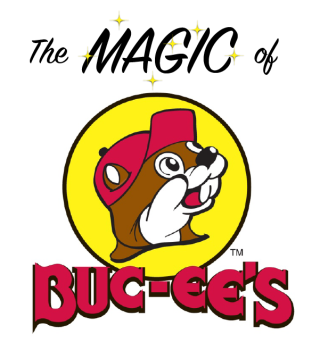I really don’t care much for Halloween. Ghosts and goblins and magic spells just aren’t my scene. October is my birth month, and here in South Louisiana the weather begins to cool down a bit, so I do love this time of year with football, the World Series, satsumas, and boiled peanuts. But you can have the hocus pocus.
I started my own business in 1995, and I can assure you there’s nothing magic about success in business. It takes hard work, lots of guts, a little smarts, and some dumb luck mixed in. Definitely not a potion for the weak-willed, would-be entrepreneur.
I recently read an article in Texas Monthly about the owner of Buc-ee’s, the wildly popular pit stop with 27 locations for motorists based in Southeast Texas. My sister lives there, (Lake Jackson—not Buc-ee’s. That would be sad). I think Beaver Aplin is onto something about building a successful business. He says there’s no magic to his success. The mystery isn’t there. Here’s the excerpt:
“According to Aplin, there’s no magic to starting a business. Hard work, consistency, customer service, and smart accounting skills will get many young businesses going in the right direction. “No one starts at the top,” Aplin says. “You must start at the bottom to build a great company, then a great brand.”
Develop brand recognition. “A strong brand establishes trust,” says Aplin. The friendly bucktoothed beaver of Buc-ee’s has come to represent an “emotional connection” for customers, and loyal patrons of the convenience store chain associate the character with Aplin’s long-standing goal of maintaining a “clean, friendly and in-stock” store. “If customers trust the Buc-ee’s brand, I can introduce them to things like Beaver Nuggets, camo popcorn and other Buc-ee’s branded products,” he says.
Don’t focus on the size of the company. “No one starts at the top. You must start at the bottom to build a great company, then a great brand,” Aplin says, using the example of Sam Walton’s story of Walmart to describe the effectiveness of starting small and differentiating oneself before expanding. Recalling his own experience, Aplin says he had no idea his small convenience store in Lake Jackson, Texas would evolve into what Buc-ee’s is today.
Focus and consistency. According to Aplin, most great companies never had a “wow” moment or specific event that propelled them to recognition. Using the example of the “Flywheel Effect” from Jim Collins’ book Good to Great, Aplin says that great companies are built from a collective series of small, yet strong, efforts. Each miniscule “push” contributes to the momentum of the spinning flywheel. “It’s more fun to talk about all the possibilities of the company and go off on tangents,” Aplin says, “but I always have to go back and ask myself, ‘Does this keep my flywheel spinning?’"
Exceed customers’ expectations. This is the mantra Aplin has devoted his business to. “Whether you’re into marketing or finance, it doesn’t matter what field you go into, exceed customers’ expectations.” Aplin advises entrepreneurs to “find a reason to be better than mediocre,” and once they’ve done this, they’ll expand their business’ radius of influence.
“Take care of your goose.” The goose, Aplin says, is one’s assets and capital. “Maintain your balance sheet so you can react when something good happens and survive when something bad happens,” he advises students.
